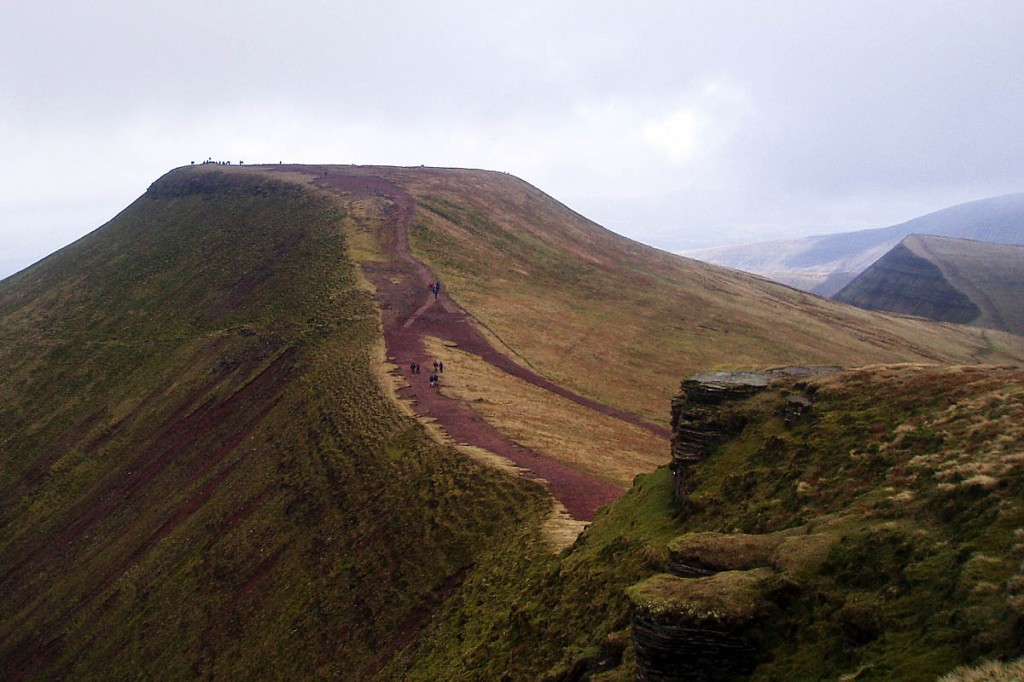The widow of one of the three reservist servicemen who died during a special forces proving exercise in the Brecon Beacons has challenged the Ministry of Defence to change its procedures.
Bryher Dunsby was speaking after a coroner delivered a narrative verdict on the deaths, which concluded that the men’s deaths were a result of neglect by the Army.
Mrs Dunsby’s husband Corporal James Dunsby died along with Lance Corporals Edward Maher and Craig Roberts in sweltering heat on the mountains in the summer of 2013.
Coroner Louise Hunt said in the inquest at Solihull that if the Army had followed its own code of practice, the exercise would have been halted after two other men collapsed with heat exhaustion earlier in the day, and the three would-be SAS reservists would have survived.
They were taking part in a gruelling 42km (26-mile) exercise over and around south Wales’s highest mountain Pen y Fan in temperatures of 29C and carrying full packs of 20kg (44lbs).
The coroner said those in charge of the exercise did not understand the risk of heat illness and had an inadequate emergency plan.
There was insufficient water for the three soldiers on the route; many water sources had dried up or were unusable.
GPS tracking devices on the men, which should have picked up the fact they were slowing or had stopped, were not working properly.
Supervisors on the march did not realise L/Cpl Maher had collapsed until he had been still for an hour and 44 minutes and L/Cpl Roberts lay collapsed for more than an hour.
Ms Hunt also criticised the chaotic emergency response, with repeated 999 calls having to be made, and the wrong grid references given to rescuers.
Speaking after the inquest, Bryher Dunsby said: “There have been times during the course of this inquest when the Ministry of Defence has lost sight of the importance of their very own values and standards.
“They displayed no responsibility, no accountability and no humility for their role in creating the culture which led to the events of the 13 July 2013. Even an ounce of this would have gone such a long way in acknowledging the vast catalogue of errors which were so clearly made.
“Those qualities and values were surely the very least which should have been displayed to honour the memory of three of their own to their families and to the coroner. James would have been so hugely disappointed by the behaviour of an organisation for which he had fought and to which he ultimately lost his life.
“The evidence in this inquest has revealed a list of countless and, quite honestly, embarrassing failings, which anyone with pride in our armed forces would find to be shocking and unacceptable.
“No part of the armed forces can be beyond scrutiny or above the law. But unless and until those at the top acknowledge and accept responsibility for the failings of their organisation, cultures will not change and the mistakes of the past will be repeated.
“It is my ardent wish and plea that, as an institution, the Ministry of Defence has the maturity to look at its failings and to want to improve. I so dearly hope that pride and ego will not continue to blind individuals from implementing the changes which so evidently must be made.
“My challenge to the Ministry of Defence is not to allow these most tragic events to be in vain and that with the opportunity of change to equipment, to training and to procedure, they appropriately honour the memories of three extraordinary young men, so this does not happen again.”
Outside the coroner’s court, Brigadier John Donnelly, director personal services (Army), said: “I would like to apologise for the deaths of James Dunsford [sic], Craig Roberts and Edward Maher, three fine soldiers.
“I would also like to offer my sincere condolences to their families and friends who have shown great dignity during what has been a very difficult period.
“We are truly sorry for all the mistakes that the coroner identified today. We have already made a number of changes to the exercise in terms of the way it is run as a result of our own investigations and those of the Health and Safety Executive, but we will study the coroner’s conclusion very carefully and make sure everything possible is done to prevent a reoccurrence of an incident such as this.
“We will also hold our own service inquiry as soon as all the civil investigations have finished.
“It is necessary to train our soldiers to the highest standards to meet the security challenges that we face both in this country and overseas. To do this requires our individuals to push themselves and take some risk. However, we must ensure that those risks are carefully managed. In this case, we did not do this and accept responsibility.”
The family of L/Cpl Maher said it was unacceptable he had died on the mountainside.
In a statement the family said it wholeheartedly supported the work of the special forces.
“We also believe that their training methods must be fit for purpose in order to produce the magnificent soldiers who undertake a role that very few are willing or able to perform,” it said.
“The SAS must distinguish between training and operational activities. Our son was not on active service in July 2013; he was undergoing selection training on a Welsh hillside, and it is unacceptable that he paid for that training with his life.”
